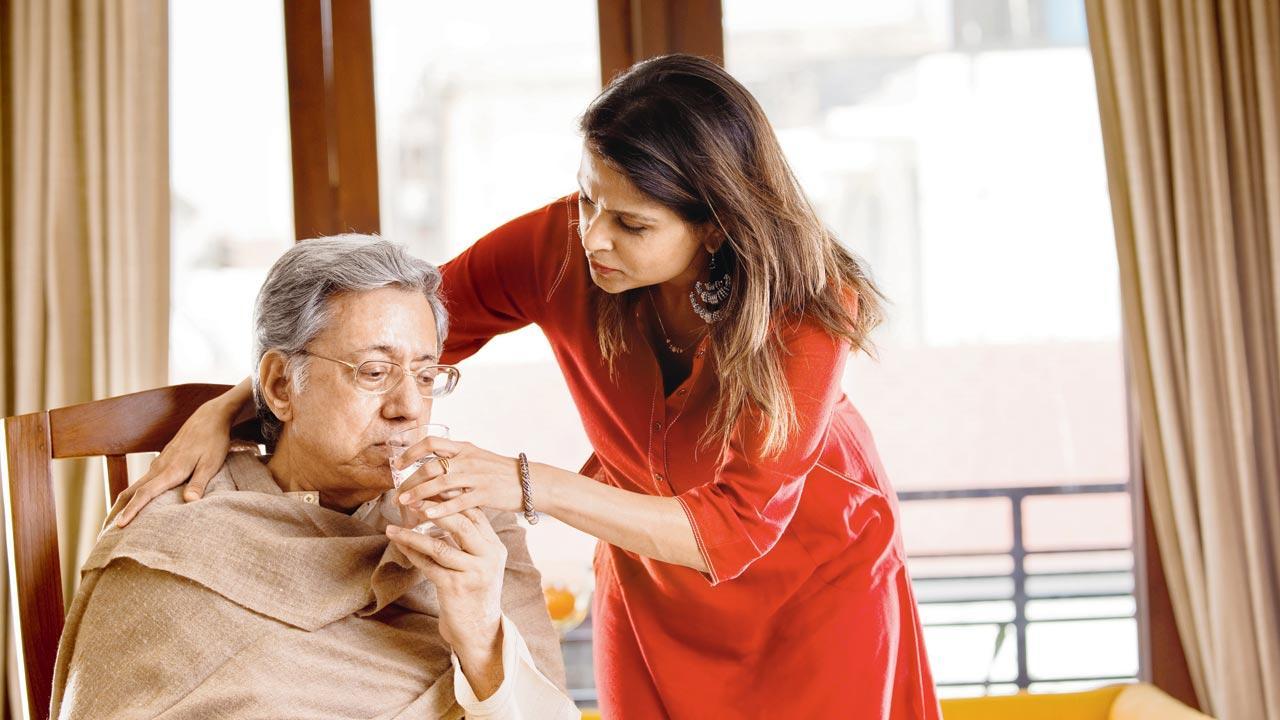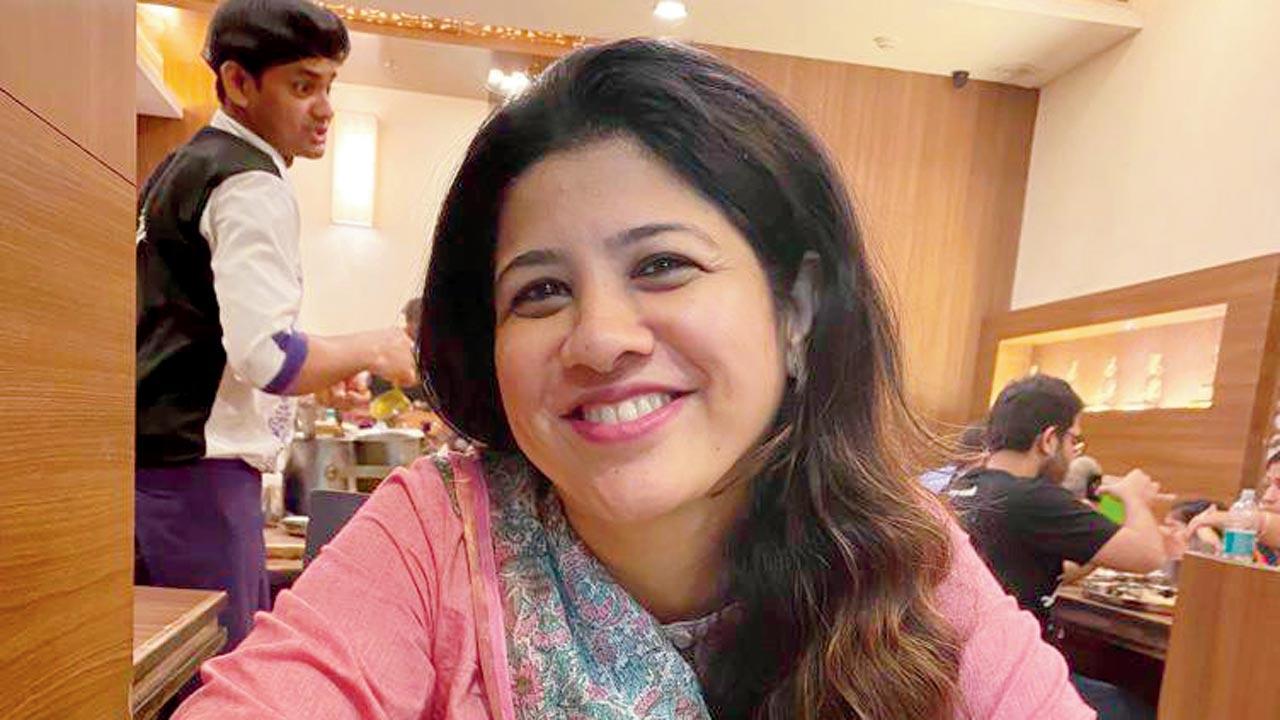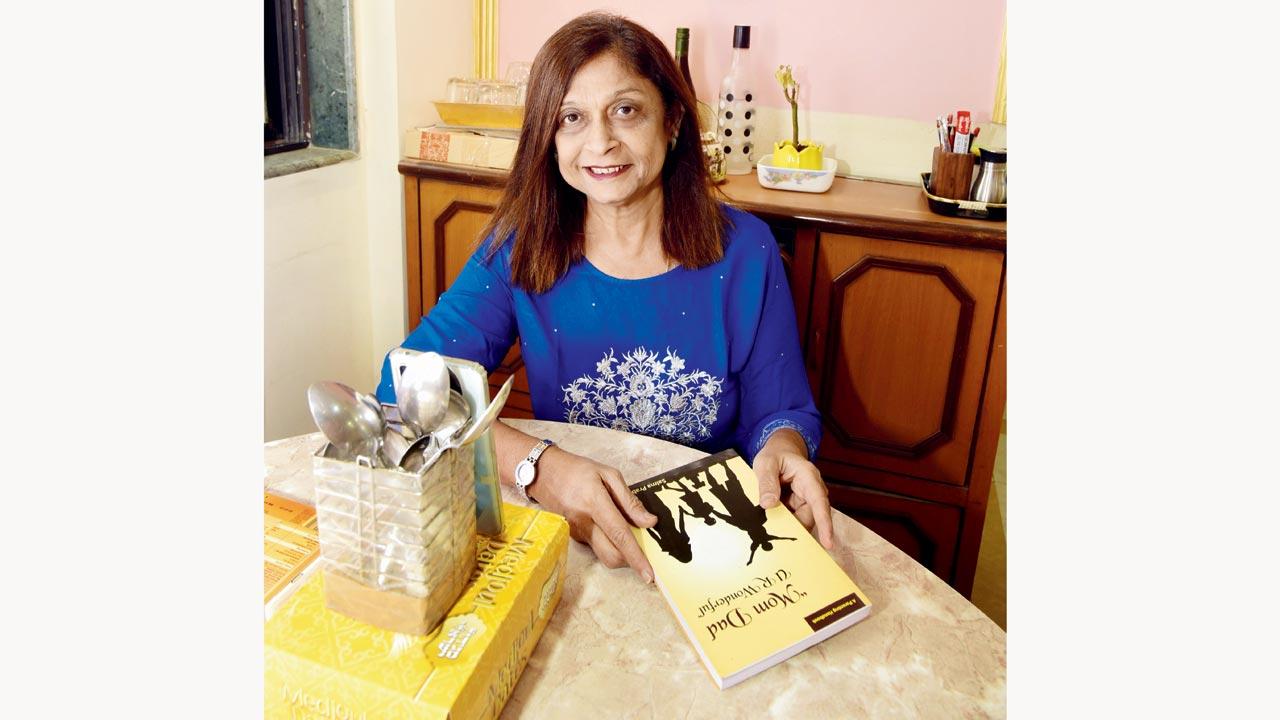Do you feel you have suspended your life to put your parent first? There’s a name for this. Parentification of kids is a flawed and traumatic experience where kids are groomed to rescue a parent

Parentification, according to American psychologist Dr Nicole LePera, is when the child is forced to play the role of a parent, to their parent. Representation pic
You are earning so much good karma,” everyone would tell the middle-aged woman when they heard she was nursing her terminally ill mother-in-law. The Mumbai-based educationist had nursed her mother for five years until she died, taking care of feeding her and changing her diapers. “But when will I enjoy this good karma?” She had wondered to herself. She had become the primary breadwinner for her family of five at 20 and later, for her own family of three.
The praise, she noticed, flowed more freely from those who could share her load, but found ways to wriggle out of it—they lived out of the city, in another country, or children were growing up and needed them, or they simply couldn’t “do it as well as you can”.
ADVERTISEMENT
Some heavy-lifting millennials have volunteered for is the autopsy of Indian style of parenting. The ensuing dissection, labelling and healing has been a relief to every person who thought they were alone. If you’ve had a sinking suspicion that you may have been groomed to look after your parent as s/he grows old, you are probably right. Let’s coin it the Shravan-bal syndrome.
Remember the story that set all the actions that culminated into the Ramayana rolling? The young man, teen rather, who carried his parents in tokris balanced on his shoulders? Many people are finding out that they have been making the service of their parents the focus of their lives, forgetting to live their own. It brings with it much resentment, then guilt and then confusion: What does one do with one’s time when the parents cross over to the other side?
 Dr. Rizwana Nulwala
Dr. Rizwana Nulwala
“You usually see this in parents who have dependent personalities, live alone or if only one parent is alive/in touch with one of the children or all,” says clinical psychologist and psychotherapist Salma Prabhu. “It could be done subtly or blatantly right from childhood. They might develop a closer bond with only one of their many children and keep them close. Metaphorically, the umbilical cord is never cut.” “The parent,” elaborates Prabhu, “prefers to be ill. When you ask them how they are doing, their reply is ‘not so good’ because they are afraid that the child will leave them if they recover, or send them to live with another sibling.” She tells of a case where a woman travelled every week from Mumbai to Kolhapur to see her father, who refused to come live with her.
The grooming could be through such statements as, “All the children have left, you will leave too… ” says psychotherapist Dr. Rizwana Nulwala. She also repeats that such dependency on one child is more likely to happen when one parent passes away or breaks away from the family. “It happens when there is an unnatural break in the family cycle,” she says, adding, “People look for meaning in life through their children. It’s a frightening thought to let them go; they will have to find a new meaning.” It starts at the funeral itself when the guests tell the child, “You are the adult/man of the house now. You have to look after your father/mother.”
There have been cases of children who’ve spent a considerable time caregiving for a parent passing away soon after their parent—sometimes within six months, other times even within 12 hours—because they have nothing to live for. Sometimes, the child may develop an obsessive compulsive disorder, according to Prabhu, who practises in Navi Mumbai and Pune. “They may clean, sweep, dust or neaten the house, washing and mopping obsessively to fill the vacuum left behind by caring for the parent. They could also go into depression after the ‘purpose’ of their life is gone.”
 Clinical psychologist Salma Prabhu says parents can play one child against the other as motivation to be “good”. That’s one of the ways the child’s grooming as the parent’s care-taker starts. Pic/Atul Kamble
Clinical psychologist Salma Prabhu says parents can play one child against the other as motivation to be “good”. That’s one of the ways the child’s grooming as the parent’s care-taker starts. Pic/Atul Kamble
Parents may also play one child against the other to motivate them, labelling one as the good child and the other as the bad child. “We like to think a parent loves all their children equally, but they can have favourites depending on the personalities of the children. They may like the one who is more like them, and be distant from the one who is more like their spouse or shares her/his negative qualities; this is especially true if there is a rift between the spouses,” says Prabhu. “It breeds animosity between the siblings, and sometimes it is not resolved even after the parent dies. The siblings never trust their brother or sister enough to rely on them. Sometimes one child is encouraged by the parent to move out of the city or country and the other is kept back.” She says it happens even amongst the most self-aware of parents. Such children may see getting married, living apart or getting a job in a different city or country as akin to “abandoning” parents and neglecting their duties. They may resist marriage or long-term relationships because they feel “selfish” or they just don’t have the bandwidth for caring for another person. “Sometimes,” says Prabhu, “they may wait to get married until the parent passes away, but often, it is too late.” “Even if they do marry,” adds Nulwala, “they prioritise their parent’s need above that of their own family. Their spouse may also be seen as a care-giver for the parent, rather than a companion for the man/woman.”
Many people, even if they realise the truth, do not talk about the pressure of caring for a parent, because it is seen as betrayal, and there is an aura of secrecy around home matters in the Indian culture. “Assisted living can be an option in such cases,” says Prabhu, “but it comes at a high price. The kind of care we would like to provide is usually available only in premium institutions.”
Parentification of a child, before s/he is an adult, is another theme of broken parenting. It starts with a parent confiding or telling a child things his or her brain has not matured enough to comprehend. “Parentification is when a child is forced to play the role of a parent to their parent,” writes American holistic psychologist Nicole LePera in her seminal book How to Do the Work. “It’s a role reversal where the child becomes the caretaker, peacemaker, protector or emotional support to the parent.” It could be emotional: The child becomes a coach, confidant and counsellor to the parent who tells them about their marriage or money problems; Or instrumental: The child takes on a major responsibility in the house such as raising of younger siblings, house work, financial burden, etc.”
The process of parentification is maybe more common in homes that see substance abuse or an emotionally or physically absent parent, says Nulwala. “The child feels an emotional need,” she says. “The parent becomes someone to be rescued or taken care of.” Prabhu believes that a child may even be weaponised by either parent if there is trouble in the marriage. “A mother or father may tell the child about their spouse’s infidelities to turn them against the father or mother, and/ore deflect blame about their role in the breakdown of the relationship,” she says. “It’s done to ensure that one parent remains popular with the child. Taking away the child’s love is one way to punish the partner too.”
Eventually, the child may fulfil the role of a spouse to the mother/father and try to compensate for the failing of the other parent by earning money or giving the attention they purportedly lack. “These children become the head of the household,” says Nulwala. “You will see that the mother or father will check with him/her before taking any decision. The child may take on adult duties such as bank work, money management. The parent may say something like, ‘I can’t do it, so s/he has to do it.’”
On the whole, Prabhu has observed that mothers expect more from their children than fathers do, and also that daughters can forgive their fathers for everything, while the son is mostly likely to blame both parents equally.
The difference between a child taking responsibilities early and parentification is the age-appropriateness of the duties or confidences shared. “Children have limited emotional development,” writes LePera, and Nulwala says this pushes the child to be an adult when s/he is not ready or prepared. “The brain cannot absorb these things at six, seven or eight years of age,” she says, and her fear is that this also leaves the child vulnerable to abuse as they are exposed to unsafe people during the scope of carrying out their “adult” duties. “The child also gets attracted to chaos and the role of a caregiver and looks for partners s/he can rescue,” says Nulwala. “The child part of him or her is also looking for someone to connect to, and s/he may barter sex with a person who can seemingly provide emotional support. Sex is connection, and a child may start dating as young as 11 years of age because s/he already feels ‘adult’ or have multiple partners. This overburdening at a young age could also lead to anxiety and set the person to look for soothing measures such as alcohol or drugs. There could also be risk of eating disorders. “Twenty year olds may develop bulimia due to anxiety, if they became the de facto leader of the house,” she adds. Anxiety and depression are expressions of stress, she says.
Nulwala says that some of these children naturally grow into the role of leaders as they are used to taking charge. “These could become the kind of bosses who have trouble switching off from work after 5 pm,” she says. “They may take on a lot of work that they don’t need to.” On the other end of the spectrum, they could also go completely wild, indulging in substances to shake off the responsibility.
“There is a lack of boundaries at home,” writes LePera. “A child’s boundaries are consistently ignored or violated. Research shows that children who have been parentified are more likely to have anxiety, show aggressive or violent behaviour and have trouble keeping relationships. They become overly concerned with other people’s emotions. They believe it is their duty to fix, save or rescue other people. They struggle to say, No, and feel guilty often. ”
The family system is the crucible of learning, as Nulwala puts it, so these children become addicted to this pattern of relationships. “If they get married, the relationships are not too happy,” says Prabhu. “They have a fatalistic mindset and are quick to jump to negative conclusions such as ‘I knew this would happen’ or ‘this always happens to me’. Many of them don’t want to have children because they are done with being responsible for someone else,” adds Nulwala.
What’s the way out? Such individuals should start by asking themselves, “What are my boundaries?” “Do I really need to take up so much responsibility?” “Do I need to be hands-on for everything?”
The big breakthrough, of course, can come through therapy. And that can happen if an individual is determined to change the course of his or her life, mindfully. “You need a professional to facilitate and guide the healing,” says Nulwala.
 Subscribe today by clicking the link and stay updated with the latest news!" Click here!
Subscribe today by clicking the link and stay updated with the latest news!" Click here!







